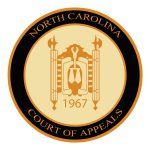
Lawyers get asked about reported cases all the time, but usually what happens in a specific lawsuit isn’t that relevant to parties not involved in the case. That’s because circumstances are different, facts vary, associations are created at different times, it’s a condo instead of an HOA, etc. That said, the decision in an appellate case can be instructive, and that’s certainly the case with a decision regarding collections this week from the NC Court of Appeals.
In the case In re: Ackah a homeowners association foreclosed on a lot for nonpayment of assessments. The property was eventually sold to a third party, but the lot owner appealed, saying she had not received proper notice of the foreclosure proceeding. The Court of Appeals agreed. The full opinion is 19 pages long, but there are two important takeaways:
Required E-Mail Notice?
An association must use due diligence in providing notice of foreclosure to an owner, which may require e-mail notification. Ms. Ackah moved to Africa in 2012 and did not tell her association. There was a tenant in her property. Mail was forwarded to an uncle’s home in South Carolina. When Ms. Ackah fell behind in HOA assessments, the association mailed several notices to the property, all of which were forwarded to the uncle’s home. Upon initiation of foreclosure, the association mailed several certified letters to Ms. Ackah, all of which were returned as undeliverable. The HOA also posted notices of the hearing on the front door of the property occupied by the tenants. A hearing was held before the Clerk of Court (Ms. Ackah was not present or represented), and the Clerk ordered the property sold. Ms. Ackah learned of the sale when her tenants received a notice to vacate the property from the new owner. While there are many details to the opinion, the Court of Appeals noted that the association had an email address for Ms. Ackah. “When the notice letters came back ‘unclaimed,’ Rule 4 [of the Rules of Civil Procedure] due diligence required that the HOA at least attempt to notify Ms. Ackah directly through the email address it had for her rather than simply resorting to posting notice on the Property.”
Remedy in the Event of a Foreclosure Without Proper Notice?
Once the Court determined Ms. Ackah did not receive proper notice of foreclosure, the next question was what to do about it. The property had already been sold to a third party who did nothing wrong. This portion of the opinion goes for almost 9 pages. As noted by the Court, there is a state statute that provides a “court cannot order any relief which affects the title to property which has been sold to a good faith purchaser pursuant to the order being set aside.” The purpose behind this statute is to protect the integrity of title transferred at a judicial sale. Because Ms. Ackah’s property had been sold to a good faith purchaser, she could not get the property back. However, the “superior court properly determined that Ms. Ackah was entitled to some form of relief . . . as she did not receive notice which satisfied Rule 4 of the proceeding before the Clerk.” The Court of Appeals did not make a decision on the type or amount of any relief (and even notes there may have been little equity in the property), but ends the opinion with this statement: “On remand, the superior court may enter an order not inconsistent with this opinion, which may include, for example, relief for Ms. Ackah in the form of restitution from the HOA . . . .”
Summary: If an association has an e-mail address for an owner and initiates foreclosure proceedings for nonpayment of assessments, make sure your attorney has that address or perhaps suffer the consequences!
In case you’re interested, the full In re: Ackah decision can be found at https://appellate.nccourts.org/opinions/?c=2&pdf=35255
Best Lawyers Recognition

I was pleased to get the call that I’m the first (and at this time only) North Carolina attorney named to Best Lawyers in America in the practice of Community Association Law. That’s quite an honor, as Best Lawyers recognition is based on peer reviews and client recommendations.
For more information, visit Best Lawyers.

